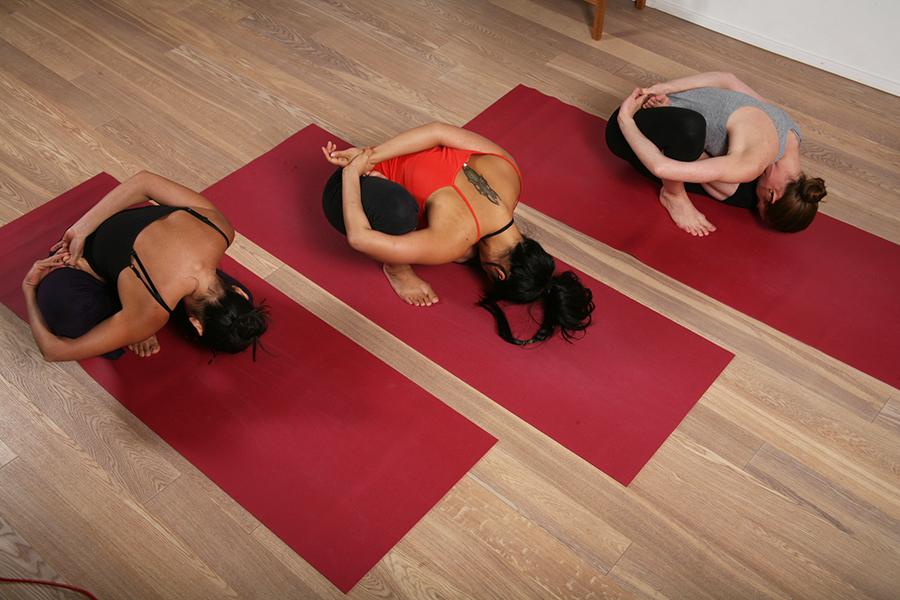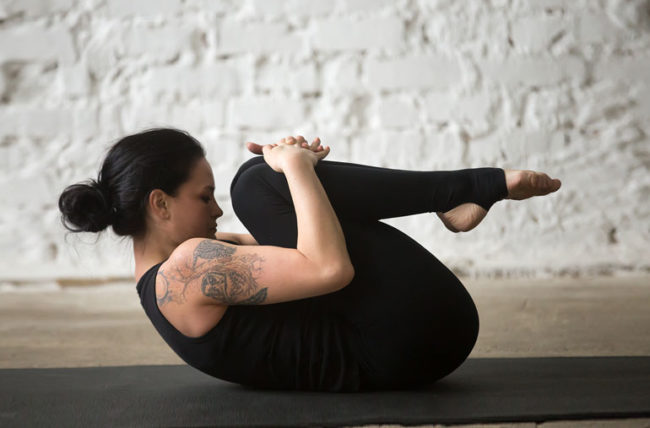
While the first few yoga poses are meant to open your chest, shoulders, and hips, they should also be done with an open mind. Start by looking upwards towards the sky. The head should be as far back as possible on the neck. These poses are not meant for warming the spine or to relax muscles, but rather to release tension and loosen the joints. These can be repeated for 7-10 rounds. Be as relaxed as possible and as aware of your movements as you can. It is best to practice these poses with your eyes closed.
Tadasana / Mountain Pose
Tadasana, also known as Mountain Pose, can be used to increase your body's energy and improve your posture. To perform this pose, you will need to use many muscles, including your flexor and extensor. This position can be great for self-esteem improvement and balance. Here are some tips for beginners:
This asana is a foundational posture that the body needs. This pose is great for deep breathing and confidence. Mountain Pose also requires one to do yoga from the ground up and work on alignment. This yogic pose is great for waking up and feeling more confident throughout the day.
Observing areas of tension
Watch your body and posture before you start your yoga class. Do you feel tension in the chest or your inner upper arm? These are areas where tension is likely to be. These tensions will release as you practice Yoga. You will notice tension in your body when you do yoga. This is a sign that you are becoming more aware of yourself. You can observe where tension is felt and take a deep breath to release it.
Yin Yoga

Yin yoga can be used to wake up and maximize the benefits of cold muscles. It makes the body more flexible, wakes up faster, and relieves tension in deeper connective tissues. Mornings can be difficult and stiff. However, yin yoga can help to stretch these layers. It also encourages body awareness. It is a great way to wake up your body, and it can also help you reduce stress and manage pain.
Yin Yoga has been proven to reduce anxiety and stress levels. It relaxes the body through the use the parasympathetic neural system. This calms the body and prevents it reacting to stress with the fight-or flee response. It can also help people with low energy levels or those who feel their bodies losing flexibility as they age.
Prayer Pose
If you want to start your morning off on the right foot, consider starting your Yoga practice with the Prayer Pose. This yoga pose helps you get a better start by stretching your body and waking you up with a peaceful mind. Your shoulders should be rounded while you extend your fingers inward. As you are in the pose, press your outside edge of the palms into your back. Tend for 10-15 breaths, and then concentrate on blending breath with movement.
To strengthen your arms and shoulders, you could also hold the reverse Prayer Pose. The shoulders open the chest, encourage digestion, increase metabolism, and boost energy levels. The Yoga pose reverse version is a good option for those with wrist pain. You can find acupuncture points on your wrists if your wrists spend a lot of time typing. This will make you feel more relaxed all around.
Plank pose
Plank is an essential element in waking up yoga practitioners. There are many benefits to this dynamic pose. This pose engages the arms, legs, and is especially good for the heart as well as the core. The pose can be held for five deep breaths. You can also hold it with your knees on top of the mat. There are many variations of Plank pose. You can either extend your leg straight up to the floor or strap your foot to the mat.

Begin by lengthening your spine and engaging your legs. Your shoulders should be at your ears. Your tailbone must point towards your feet. When you hold the pose for a while, look forward. Then focus on your breath. The goal is to keep your spine neutral throughout the entire sequence. Before practicing yoga, you should consult your physician if you have any health issues or injuries.
Take a deep breath and observe your body.
Observing your breath while you wake up is a crucial component of waking up yoga. You can benefit from this practice by becoming aware of your breath in all situations. Start by simply noticing your breath every time you walk, sit or lay down. While you breathe, be aware of your abdomen, chest and stomach. It will give you a deeper understanding of how your breath works.
Mindful attention to your breath is a way to learn how to be a scientist of your breath. It has been shown to help people manage their emotions and increase connectivity in the amygdala and prefrontal cortex. The result is greater calm and less anxiety. This technique can help you to sleep better and be more alert if you do it every day. You can start by only taking five minutes to observe your breath. Then, you can increase the time that you spend doing this.
FAQ
What is the importance of mental health?
Everyone's mental health is important. Mental health is crucial for all people. It is important to keep your mind healthy.
When our minds aren't in the best place, our bodies start to show signs and symptoms of stress. This could cause health problems, such as stomach aches, backaches, headaches, and other issues. For our minds and bodies to be healthy, we need to take care of ourselves.
Why is mental well-being important?
Play, work, learning, and love are all important. Mental health is about our overall well-being. We're referring to physical, psychological, social, spiritual, and environmental factors that impact us daily. There are many options for taking care of yourself mentally and physically as well as emotionally, spiritually, financially, and socially. You don't need to do it all at once. Start somewhere.
Understanding where you are at the moment is the first step towards improving mental health. Take this quiz to see if you're doing enough for your mental well-being. If you score low, then you might want to consider making some changes to your lifestyle.
You scored well, congratulations! Here are some things you can do that will help improve and maintain your mental health.
-
Get enough sleep You can keep your brain sharp, energized and alert by getting enough sleep. The American Academy of Pediatrics (AAP), recommends that children get 7 to 8 hours of sleep per night.
-
Exercise Regularly. Exercise releases endorphins, which make you happier and less likely stress. Five times per week, aim for 30 minutes of exercise.
What are some mental-emotional issues?
Any condition that causes distress or impairment to functioning is called a mental disorder. Anxiety, depression, schizophrenia, borderline personality disorder and obsessive compulsive disorder are all examples of mental disorders.
How does mental health affect my relationships?
Your mental health can have a profound impact on your daily life. It can impact your ability to function well at home, school and work. It can be difficult to build meaningful relationships due to mental health issues.
It's easy for people to judge you when you have a mental illness. You may even avoid social situations because you feel like no one understands you.
However, it's important to remember that people want to be around you. They just need to know how to approach you.
Talking to people about your feelings is a good way to connect with others. Ask them to help you.
Statistics
- More than 40 million adults in the United States have an anxiety disorder, but less than 37% of people seek mental health treatment for their symptoms. (talkspace.com)
- More than 50% will be diagnosed with a mental illness or disorder at some point in their lifetime.3 (cdc.gov)
- It means no drinking any alcoholic beverages and no taking any drugs that aren't 100% natural.
- According to the National Alliance of Mental Illness (NAMI), one in five Americans experiences mental health issues which translates to more than 40 million adults a year. (doctorondemand.com)
- It does have some influence, but not nearly as much as we might think, so focusing less on attaining wealth will likely make you happier (Aknin, Norton, & Dunn, 2009); (positivepsychology.com)
External Links
How To
How to tell if you need help from a mental-health expert
These signs will help you determine if you should seek professional help. Any warning signs should be spotted and consulted a doctor.
-
It's as if you feel out of control.
-
You've been having trouble sleeping.
-
When you try to focus, your thoughts race.
-
You are thinking about suicide.
-
You feel hopeless.
-
You feel that life is not worth living.
-
You are losing interest in the things you once loved.
-
You have stopped eating.
-
You have been removed.
-
To cope with stress, you may have tried to use drugs or alcohol.
-
You are starting to lose family or friends.
-
You have experienced other physical symptoms such as headaches, stomachaches, backaches, chest pains, etc.
These are all signs that you should look out for.